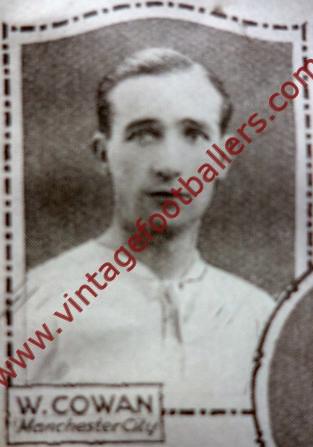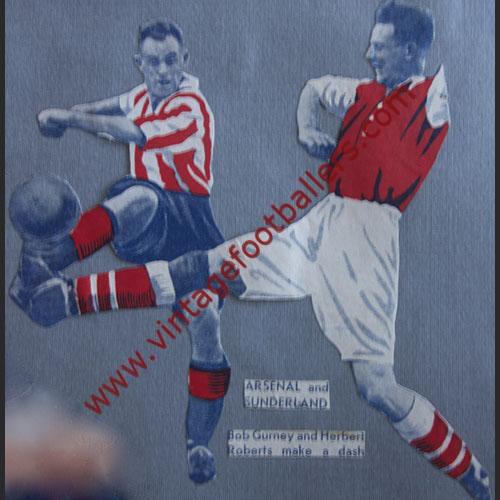Please choose your photo size from the drop down menu below.
If you wish your photo to be framed please select Yes.
Note: 16″x 20″not available in a frame.
Images can also be added to accessories. To order please follow these links
£8.95 – £49.95
Please choose your photo size from the drop down menu below.
If you wish your photo to be framed please select Yes.
Note: 16″x 20″not available in a frame.
Images can also be added to accessories. To order please follow these links
Centre forward Norman “FNS” Creek was born in Darlington, County Durham, and first played representative football for Darlington Grammar School. During the First World War he served as a Second Lieutenant in a Territorial Force Battalion of the Durham Light Infantry, until being seconded to the Royal Flying Corps on 8th December 1917 to serve as a flying officer (observer). He was subsequently awarded the Military Cross, which was gazetted on 10th May 1918. His citation read:
Second Lieutenant Frederick Norman Smith Creek, Durham Light Infantry and Royal Flying Corps.”For conspicuous gallantry and devotion to duty. He carried out several successful reconnaissances of enemy aerodromes and railways, and obtained valuable information often under the most difficult weather conditions. On one occasion he took several photographs of an enemy aerodrome though he was attacked by an enemy machine and subjected to anti-aircraft fire. He displayed the greatest skill and determination.”
On 1st August 1919 Creek was awarded a permanent commission in the Royal Air Force with the rank of Lieutenant. However, he was transferred to the unemployed list on 12th September 1919 and his permanent commission cancelled on the 16th.
He then went up to Cambridge University where he won his first “Blue” in 1920. Injury prevented him playing in 1921, but he earned his second blue the following year. He first began playing for The Corinthians in 1919 and remained associated with the club until the 1930’s. He signed amateur forms with hometown Third Division (North) club Darlington and made two Football League appearances between 1922 and 1924, scoring on his Football League debut against Southport in April 1922 and playing against Crewe Alexandra in September 1923.
He was awarded a full England cap when he scored in a 4-1 victory over France in Paris in May 1923. He also won five caps for the England amateur team over 10 years, scoring a hat-trick on his debut in a 7-0 win against Wales at The Vetch Field in January 1922, being recalled to the team first in March 1924 when he scored in a 2-1 win in Wales at The Oval, Llandudno, again in November 1928 scoring both goals against Ireland at Cliftonville Gardens, Belfast, and winning his final two caps in early 1932 scoring twice against Wales at The Vetch Field, finally playing in a defeat to Scotland at Hampden Park.
Between 1923 and 1954 he worked as a schoolteacher at Dauntsey’s School, Wiltshire teaching “Games” and Geography, during which time he also played cricket for Wiltshire. While at the school, he helped organise the Local Defence Volunteers. He was also a cricket writer for the Daily Telegraph, and wrote various books including “A History of the Corinthian Football Club” (1933) and “Centre Half – Attack or Defence?”.
Creek returned to military service during the Second World War, being granted a commission for the duration of hostilities as an acting pilot officer on probation in the Training Branch of the Royal Air Force Volunteer Reserve on 9th March 1941. He was confirmed in his rank on 9th September. On 28th May 1943, by which time he was an acting flight lieutenant, Creek was made a Member of the Order of the British Empire.
After retiring from playing he continued his association with the England amateur team as their manager. He was also managed the Great Britain Olympic Football Team during the 1950’s and 1960’s, whilst working for the Football Association.
| Weight | N/A |
|---|




